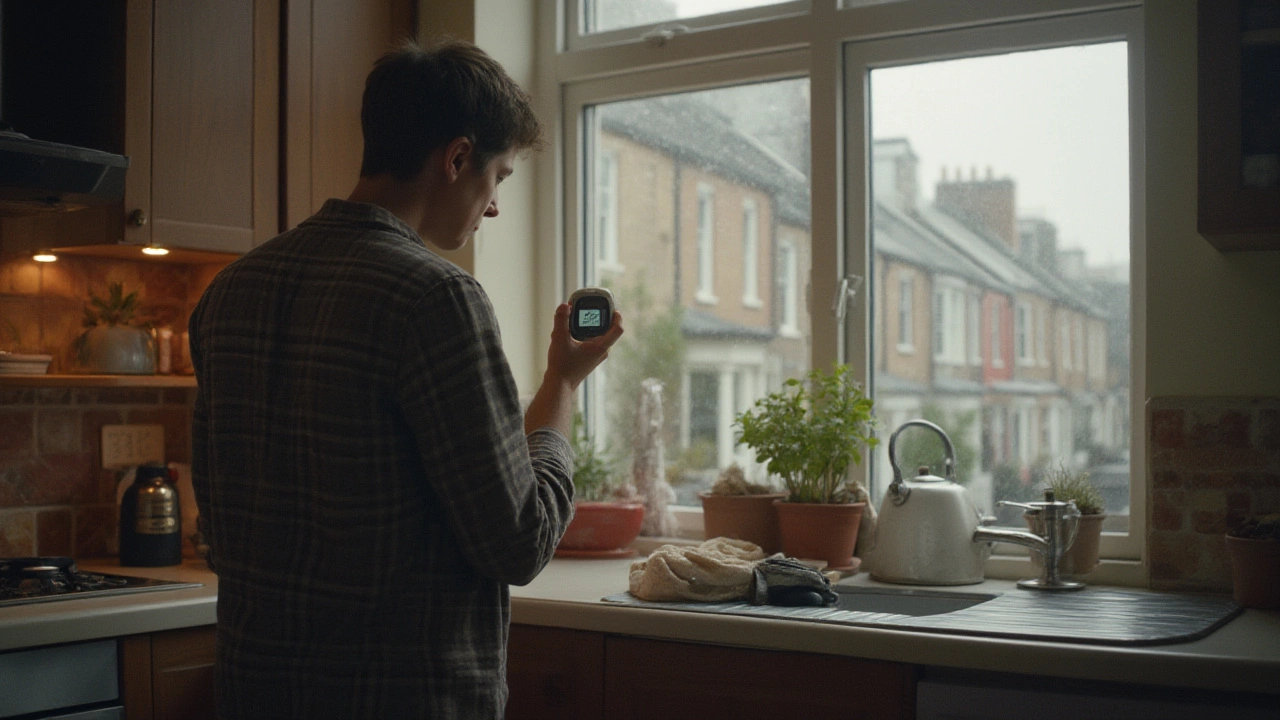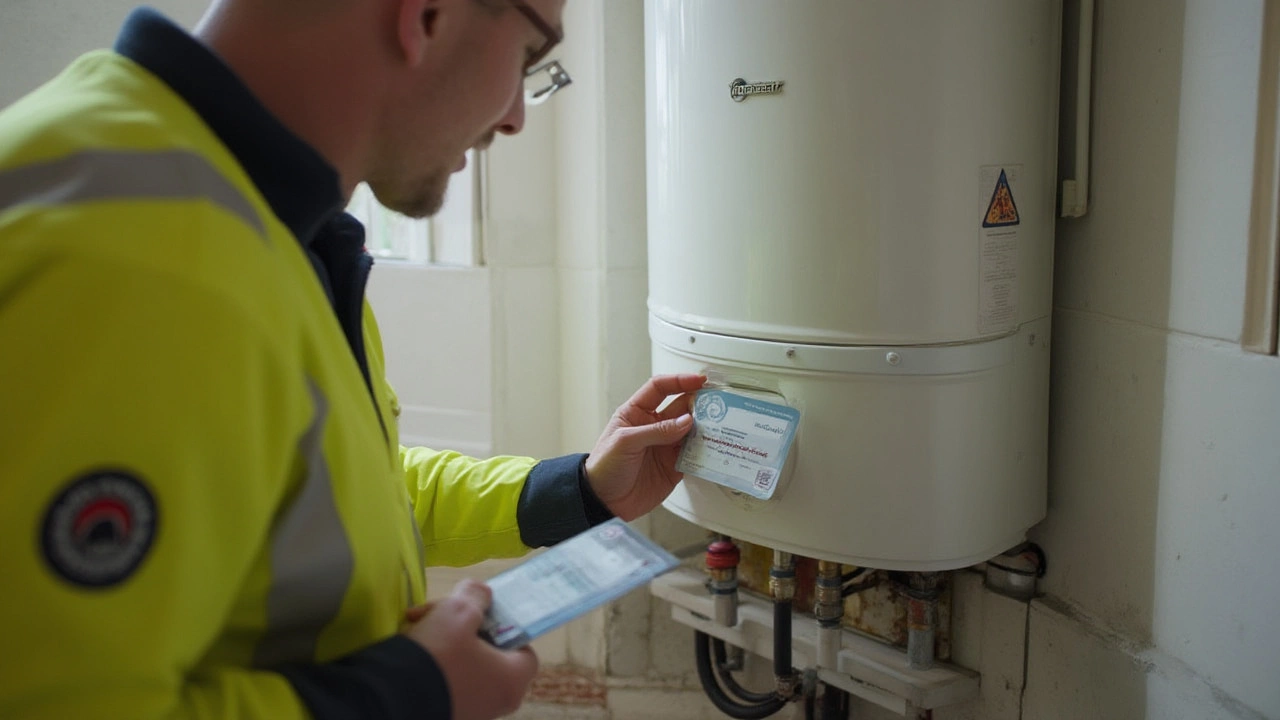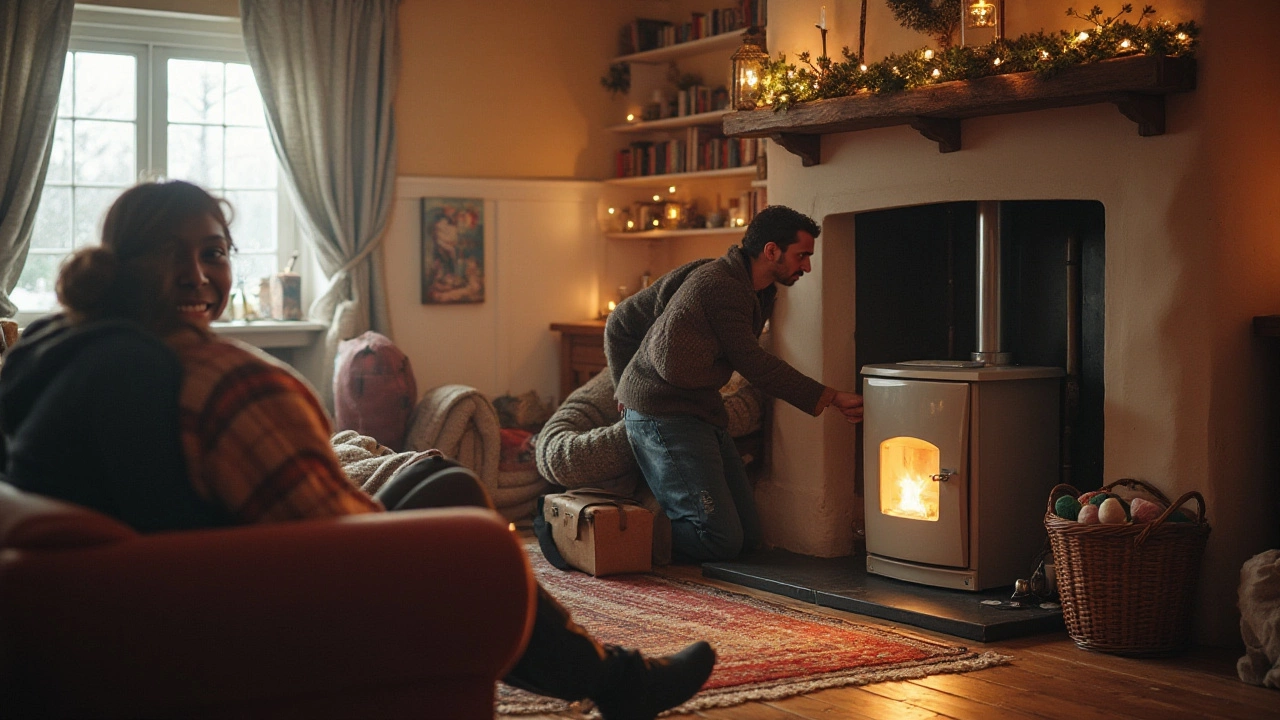
- 16 Jul 2025
- Gideon Thornton
- 0
If you had to bet your next hot shower on it, could you say for sure who’s meant to fix your boiler—the plumber or someone else entirely? In the UK, the words ‘plumber’ and ‘boiler engineer’ get tossed around a lot, but swapping them isn’t as harmless as mixing up your socks. You don’t just want anyone tinkering with something that handles gas and keeps your house warm. The rules and job titles matter, especially when you realise how strict regulations are and how closely these apply, even to the friendliest face from down the road.
Understanding Who Can (And Can’t) Fix Your Boiler
There’s a fair bit of confusion here, so let’s clear the air. A ‘plumber’ is technically anyone certified to work with water pipes, taps, toilets, drains, and sometimes radiators. But boilers—especially gas boilers—are a different beast altogether. In the UK, you can’t just call anyone who fits sinks to poke around in your boiler. The law is very clear: anyone working on a gas boiler must be a registered Gas Safe engineer. The Gas Safe Register replaced CORGI back in 2009 and acts as the official list of legally qualified gas engineers. Every year in the UK, about a quarter of a million boiler breakdowns are handled by professionals, so you can see just how often this rule matters.
If a plumber is Gas Safe registered, then yes, they can legally repair your boiler. But here’s the catch: not all plumbers have this qualification. The two jobs overlap, but not always. Think of it like all thumbs are fingers, but not all fingers are thumbs. There are plenty of plumbers who only do water systems, not gas, and wouldn’t even touch a boiler except maybe the pipes that go in and out of one.
When it comes to fixing boilers, most local companies will have both regular plumbers and heating engineers—sometimes they are the same person, sometimes not—and heating engineers are more likely to have specialized boiler training on brands like Worcester Bosch, Vaillant, Baxi, and Ideal, which account for around 80% of UK boiler installations. So, before you call anyone out, ask if they’re Gas Safe registered and check their ID when they arrive. If you see the yellow triangle logo, you’re good. If they fumble for excuses, let the cat chase them off.
Why Using the Right Person Actually Matters
Fixing a boiler is a bit like open-heart surgery on your home—do you want a GP or a specialist on that job? Safety is the big deal here. Over 45% of all accidental carbon monoxide poisonings in UK homes are linked to faulty boilers and poor repairs. If an unqualified person makes a mistake, it’s not just a leaky tap; it could be deadly.
Legal issues are another headache. If you have work done by someone unregistered, you void your boiler’s warranty faster than you can say ‘replacement parts’. Most manufacturers—Worcester Bosch, Viessmann, and Ideal included—require all repairs and annual services to be done by a Gas Safe engineer. Many insurance policies won’t pay out if something goes wrong after an illegal repair.
There’s the cost factor too. A bad repair might seem cheap—until you’re facing a bigger bill when the job has to be fixed properly later. According to a 2024 study by Which?, average call-out costs for botched boiler repairs are almost double when you need an expert to redo someone else’s dodgy work. So while your local ‘handyman’ might mean well, it doesn’t pay to gamble here.
Many tenants and landlords don’t know this, but there are legal requirements for landlords to get annual gas safety checks (the LGSR certificate) in every rented property. Only a Gas Safe engineer can issue those—never just a plumber unless they’re qualified. That’s why letting agents keep strict lists of approved contractors, and the fines for breaking those rules can hit £6,000 or lead to jail time.

Everyday Boiler Problems: When Do You Call a Plumber?
This is where it gets a bit more practical. Not every heating issue screams ‘qualified boiler doctor needed’. Sometimes, you just need a skilled plumber—leaky radiator valves, fitting TRVs (thermostatic radiator valves), or tackling sludge in pipes is usually in a plumber’s toolkit. But as soon as you have problems inside the boiler casing—like pilot lights going out, pressure dropping, or error codes that won’t clear—you have to call a Gas Safe engineer.
If you’re wading through a cold flat wondering if you can sort something yourself, check the basics first:
- Is the boiler showing a pressure below 1 bar? You might only need to top up the pressure—most handbooks show how to do this safely. It’s about as risky as brewing tea, as long as you follow instructions.
- Are your radiators cold at the top and hot at the bottom? That’s almost always trapped air—bleed the radiators with a bleed key, but catch drips with a towel unless you want floors like mine after Whiskers tips over the water bowl.
- Still no hot water after checking the thermostat, timer, and fuse? Now you’re into boiler territory—time to call the expert.
- If you smell gas or see sooty marks around the boiler, that’s an emergency—open windows, get out, and call the National Gas Emergency Service. Don’t even think of DIY for that one.
Sometimes plumbers and boiler engineers work as a team. For example, fitting a new radiator or relocating pipework ahead of installing a new boiler is usually a two-step process: plumber first, then boiler engineer.
Tips for Choosing the Right Expert and Avoiding Common Boiler Pitfalls
So, you know you need a Gas Safe engineer. How do you find a good one and skip all the faff?
- Use the Gas Safe Register (gassaferegister.co.uk) to search for local qualified engineers. You can even check the badge number they show you when they arrive—every engineer gets a new card each year, with a photo and list of which appliances they’re qualified to fix.
- Always get quotes in writing, and watch out for companies that ask for full payment upfront. A reputable boiler engineer will usually take payment after the work (sometimes a small deposit for big jobs, though).
- Ask about guarantees. Most repairs come with at least a 12-month warranty on the fix. Boiler manufacturers give up to 10 years’ warranty if you follow their service schedule and use approved parts.
- If the issue keeps repeating, ask for a diagnostic report. Engineers should be able to explain the problem in plain language, not mumble about ‘expansion vessels’ like it’s Hogwarts. A good expert helps you understand, not just fixes it and runs.
- Look up local ratings on Checkatrade, Google, or Trustpilot. An average engineer sees dozens of jobs a month, and patterns in feedback make a difference. If you see repeated comments about missed appointments, keep looking.
Here’s a quick snapshot of common boiler faults and who’s best to fix them:
| Issue | Who to Call | Likely Cost (2025) |
|---|---|---|
| Low pressure | DIY / Plumber | £0–£50 |
| Cold radiators | Plumber | £50–£100 |
| No hot water | Gas Safe engineer | £80–£150 |
| Leaks inside boiler | Gas Safe engineer | £100–£200 |
| Gas smells | Emergency Gas Services | Free/emergency |
One last tip: keep your boiler serviced every year, even if it seems fine. Annual servicing by a qualified pro stops surprise breakdowns and usually costs less than £100 in Bristol or most of the UK. Neglecting it can mean facing a repair bill six times higher—especially if something simple grows into a full-scale failure. In my own flat, a skipped service once led to a failed heat exchanger and two weeks without hot water. Trust me, cold showers in January aren’t character-building; they’re just miserable.
So next time you wonder if you need a plumber or someone with extra letters after their name, remember: for anything inside the boiler, it has to be a Gas Safe engineer. It’s the difference between safe warmth and expensive regrets. And if you’ve got a cat like Whiskers, who’s convinced the boiler is secretly haunted, maybe just stand back and let the real pros do their work.




